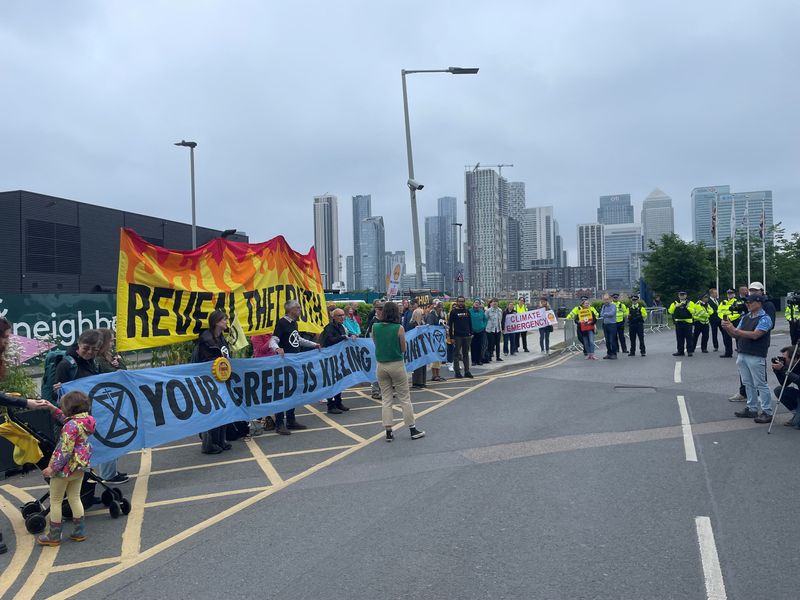By Ron Bousso and Deep Kaushik Vakil
LONDON (Reuters) -Shell shareholders on Tuesday rejected a resolution filed by a group of investors urging the energy company to set tougher climate targets.
The vote came after Shell (LON:RDSa) CEO Wael Sawan weakened a 2030 carbon reduction target in March, citing expectations for strong gas demand and uncertainty in the energy transition, while focusing on more profitable operations, mainly in oil and gas.
The investor resolution received 18.6% support from shareholders in preliminary results. A separate resolution from Shell's board on its climate strategy won 78.2% support.
"Shell believes continued investment in oil and gas will be needed," Chairman Andrew Mackenzie told the company's annual general meeting (AGM).
Mackenzie added that Shell believed the world would need more liquefied natural gas (LNG) through the energy transition and that "oil will play a vital role for a long way to come".
The meeting was disrupted several times by climate protesters chanting "Shell kills". Climate protesters also held a demonstration outside the meeting.
The resolution was filed by activist shareholder Follow This and backed by a group of 27 investors that collectively have around $4 trillion under management. It urged Shell to align its medium-term carbon emissions reduction targets with the Paris Climate Agreement, including emissions from fuels burnt by consumers.
These end-user emissions, referred to as Scope 3, account for about 95% of the company's greenhouse gas pollution.
The vote backers included Amundi, Scottish Widows, Rathbones Group and Edmond de Rothschild Asset Management.
Shell's board had urged investors to oppose the resolution saying it "is against both good governance and shareholders' interests, and also has negative consequences for our customers".
Last year, a similar climate resolution filed by Follow This won 20.2% support, when the AGM was repeatedly disrupted by protesters who also tried to storm the stage where the board was sitting.

Oil majors have come under increased investor pressure to focus on their most profitable businesses after reporting bumper profits in recent years while returns from renewables slumped.
Scientists say the world must cut greenhouse gas emissions by around 43% by 2030 from 2019 levels to stand any chance of meeting the 2015 Paris Agreement goal of keeping warming well below 2 degrees Celsius (3.6 degrees Fahrenheit) above pre-industrial levels.